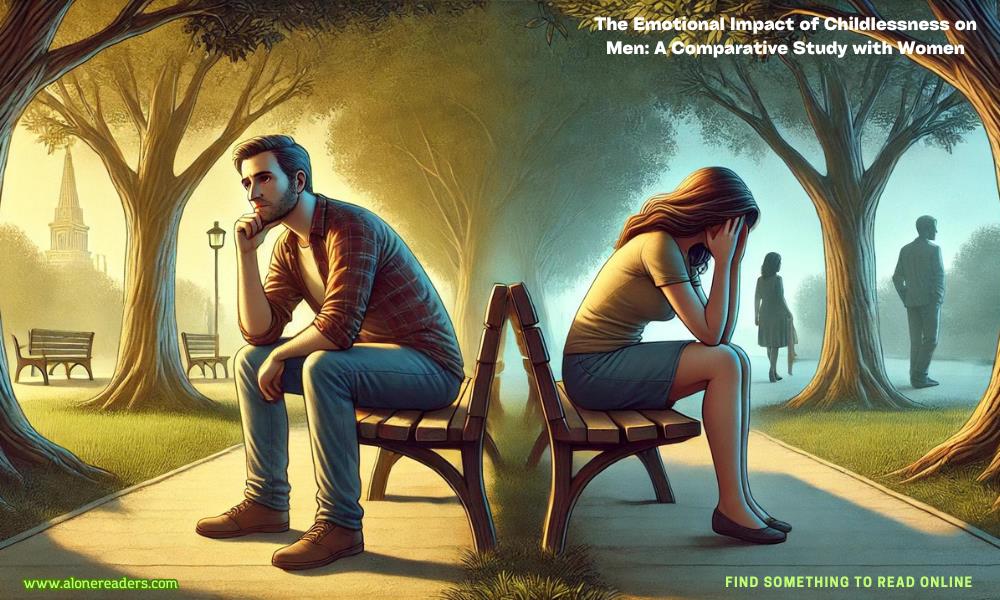
The desire to have children is often perceived as a predominantly female trait, but recent studies challenge this stereotype, revealing that men are almost as likely as women to want children. This desire for parenthood is deeply rooted in both genders, driven by a mix of biological, psychological, and social factors. When men find themselves unable to fulfill this aspiration, the emotional consequences can be profound, often mirroring, and in some cases surpassing, those experienced by women. The journey through childlessness is fraught with complex emotions, and for men, it can lead to feelings of loneliness, depression, anger, and sadness.
For many men, the decision to have children is tied to a sense of legacy and the continuation of family lineage. This cultural and personal significance placed on fatherhood can create a strong emotional drive to become a parent. When this desire is unmet, men can experience a deep sense of loss and failure. Unlike women, whose struggles with childlessness are more openly discussed and supported, men often face societal expectations to remain stoic and unemotional. This societal pressure can exacerbate feelings of isolation, as men may find it challenging to express their grief and seek support.
Loneliness is one of the most pervasive emotions men experience when they are unable to have children. The societal expectation that men should be providers and protectors often leaves little room for expressing vulnerability. As a result, men may withdraw from social circles and activities that remind them of their childlessness. The isolation that follows can lead to a profound sense of being alone, disconnected from peers who may be experiencing the joys and challenges of parenthood. This sense of alienation is not just social but also deeply personal, affecting their self-esteem and sense of purpose.
Depression is another significant consequence of childlessness in men. The unfulfilled desire to have children can trigger a range of depressive symptoms, including persistent sadness, loss of interest in activities, and a sense of hopelessness. For men, depression can be particularly insidious as it may manifest in ways that are less recognizable, such as increased irritability, anger, or risk-taking behaviors. The stigma surrounding mental health issues in men further complicates their ability to seek help, leading to untreated depression that can severely impact their quality of life.
Anger is an emotion that often accompanies the experience of childlessness in men. This anger can stem from various sources, including frustration with their circumstances, feelings of inadequacy, and resentment towards societal expectations. Men may feel anger towards themselves for not being able to fulfill their desire for children, towards their partners if they perceive them as being less affected, and towards society for its lack of support and understanding. This anger can strain relationships, both personal and professional, leading to further isolation and emotional distress.
Sadness is a natural response to the unfulfilled longing for children. For men, this sadness can be compounded by the lack of outlets for expressing their grief. While women often find solace in sharing their experiences and receiving empathy from others, men may feel pressured to hide their sadness, fearing judgment or rejection. This unexpressed sadness can build up over time, contributing to a chronic state of emotional pain and dissatisfaction with life.
The emotional impact of childlessness on men highlights the need for greater awareness and support. Societal attitudes towards male emotions must evolve to recognize that men, like women, experience deep and complex feelings related to parenthood. Creating spaces where men can openly discuss their desires, fears, and disappointments regarding childlessness is crucial. Support groups, counseling services, and public awareness campaigns can play a vital role in addressing the emotional needs of childless men.
Moreover, it is essential to challenge the stereotypes that define masculinity in restrictive terms. Encouraging men to embrace their vulnerability and seek help when needed can foster a healthier emotional environment. By normalizing the conversation around male childlessness and its emotional ramifications, society can help men navigate this challenging experience with greater resilience and hope.
In conclusion, the emotional journey of childlessness is not exclusive to women. Men, too, have a profound desire for children and experience significant emotional distress when this desire goes unfulfilled. The loneliness, depression, anger, and sadness that accompany childlessness in men underscore the need for a more inclusive and supportive approach to addressing this issue. By acknowledging and validating the emotional experiences of childless men, society can help them find the support and understanding they need to cope with their feelings and lead fulfilling lives, irrespective of their parental status.